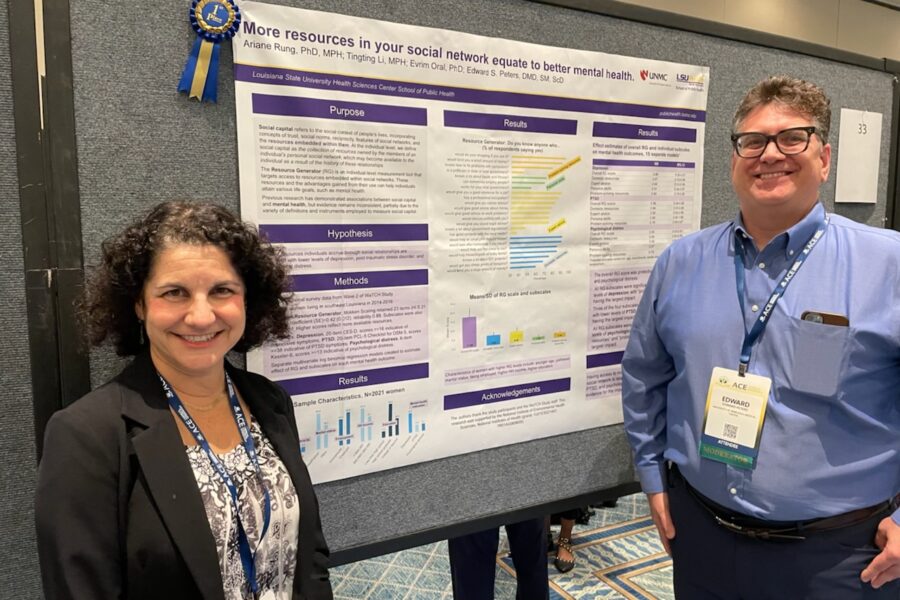Members of the UNMC College of Public Health attended the American College of Epidemiology annual meeting in Scottsdale, Ariz. at the beginning of Sept. and were recognized for their research.
Edward Peters, DMD, professor and department chair of the Department of Epidemiology, joined by Ariane Rung, PhD from LSU Health Sciences School of Public Health, presented research at the meeting that examines the role of environmental stress on women’s health.
“One important focus area is mental health, such as depression. We were interested in whether individual social support is associated with lower levels of depression, post-traumatic stress disorder, and psychological distress,” said Dr. Peters.
“For this presentation, we used a survey tool called the Resource Generator to measure individual-level resources embedded within our participants’ social networks. Our study examined the association between resources and Depression, PTSD, and psychological distress. We observed that access to more resources embedded within one’s social network is related to lower depressive symptoms, PTSD, and psychological distress.”
The ACE awarded their research first place.
Dr. Peters said being able to attend the meeting in person after two years was exciting.
“The collegiality of the epidemiology community who attended was rewarding and invigorating. We were excited to receive first place for our poster and believe it highlights some of the newer focus on the importance of social capital and social networks. This research area is becoming even more important when we consider the effects of isolation during the past two years of the pandemic on mental health,” he said.
According to the ACE, more than 100 people attended the meeting in person with another 50 people attending virtually.
Funding for this research is provided by the National Institute of Health’s National Institute on Aging.
